On Sunday, November 27, 2022, the Sustainable Favela Network (SFN)* held its first in-person full network meet-up since 2019, taking over the Raízes da Tijuca Carnival Bloco headquarters in Morro do Salgueiro in Rio de Janeiro’s North Zone, an event that lasted the whole day. In 2020 and 2021, due to preventative measures taken against the coronavirus pandemic, the SFN and all its activities including the traditional Annual Meet-Up took place online in order to safeguard the health of its members.
The SFN’s 5th Annual Full Network Meet-Up was attended by 153 participants and featured a rich knowledge exchange and strengthening of the sustainable qualities of favelas and quilombos in Rio de Janeiro, largely by community organizers who shared experiences from their projects and in relation to the year’s theme: climate justice. The participation of the Salgueiro community was essential as they welcomed the Network’s members and technical allies into their home territory with great care and attention.
The Days Starts with a Walk Through Salgueiro
The day began with a walk through Morro do Salgueiro—repeated again in the afternoon—guided by Denise Francisca de Oliveira who was born and raised in the community and works with Projeto Atitude Social. The walk included stops at viewpoints and historical places, such as the former washerwomen’s roof terrace, local church, community garden, and the Jurema Gomes Batista Community Library, named in honor of a teacher who fought for the education of children and youth in Salgueiro. During the morning walk the planting and green roof possibilities in the favela were also analyzed, in partnership with Luis Cassiano from the Green Roof Favela project.
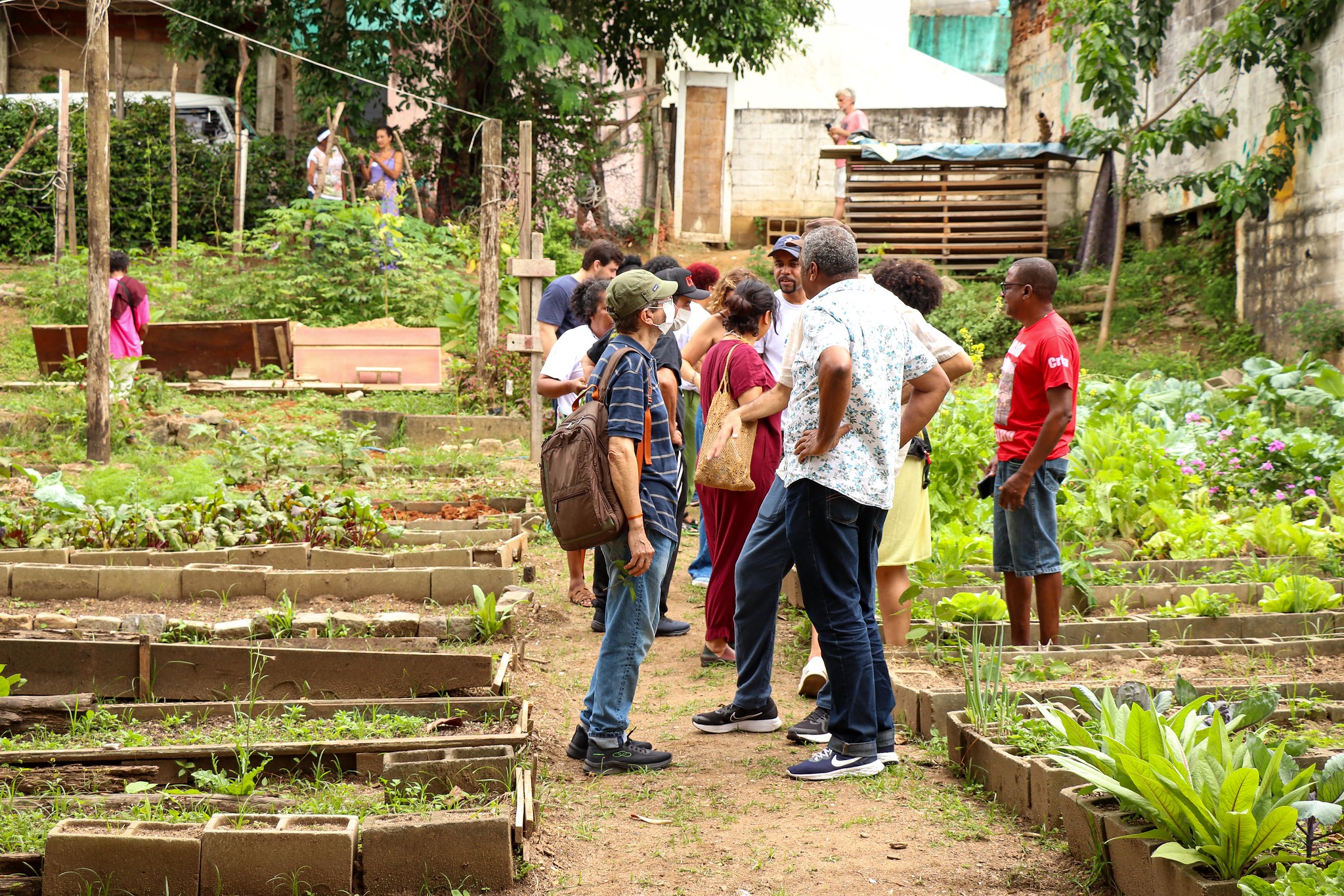
Oliveira is also one of the leaders responsible for the Jurema Gomes Batista Community Library and upon arriving at the locale she spoke about her former teacher Jurema with great affection and about the importance of the space for the education of children in the community. As well as books, the library offers supplementary classes, helping students with literacy skills, and is starting a project to raise awareness of local history and historic figures from the community. Oliveira told of how she heard a child say they didn’t know about the importance of their own grandfather, Jair Corina, one of Salgueiro’s first communicators. It was from this experience of educating a child about their own family history that she had the idea of a project to bring knowledge of the community’s history to the whole favela through the Jurema Gomes Batista Community Library.
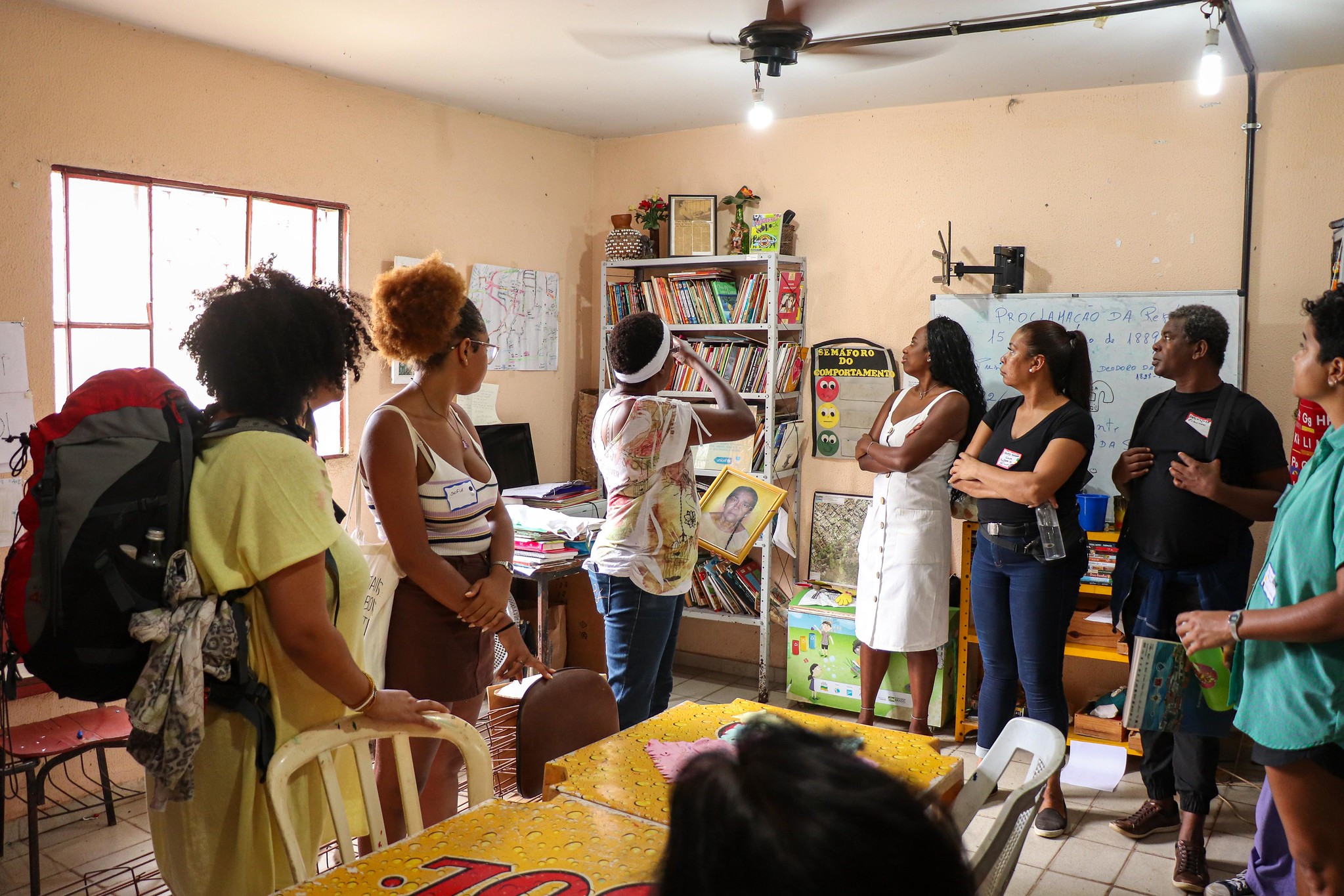
Oliveira was able to share quite a lot of the favela’s history during the walk. One example concerned the tragedy at a local church, the São Sebastião Chapel, which was built on top of a water well where decades ago a child of the community fell down and died. She also told stories of the stairways and alleys whose names remember residents, their habits or achievements, the history of the washerwomen and of the pollution and landfilling of rivers, of open-air sewerage, and other problems arising from government neglect. During the walk, Oliveira also talked about heritage and the cultural riches of Caxambu do Salgueiro and samba which have made her small favela—with its 8,000 residents according to her—internationally known.

Remembering SFN Climate Justice Activities in 2022
Throughout the day, there were moments to explore and discuss the aims and achievements of the Sustainable Favela Network Climate Justice Initiative carried out throughout 2022 and which will continue in 2023. The starting point was the launch of the retrospective video—with English subtitles—covering the SFN’s 2022 activities, summarizing events such as Alfazendo‘s socio-environmental mobilization training for SFN members; the construction and launch of a sewage treatment bio-system and solar panels in Vale Encantado; SFN knowledge exchanges like those hosted by the Serra da Misericórdia Integration Center in Terra Prometida and by the Transvida Cooperative in Vila Cruzeiro; a green roof course bringing knowledge from the Green Roof Favela project to be applied at the Kennedy Brothers Community Center (CCIK) in Vila Kennedy; and the “Researching and Monitoring Water and Energy Justice in the Favelas” course which trained 45 people—15 leaders and 30 youth—from 15 favelas across Greater Rio.
Watch the 2022 SFN Video Retrospective Here (with English subtitles):
This course led to a report which presented exclusive data on the quality, access, and efficiency of services supplying water and electricity in the favelas, launched in print format at the Annual Meet-Up (and which will be launched in English in February 2023).
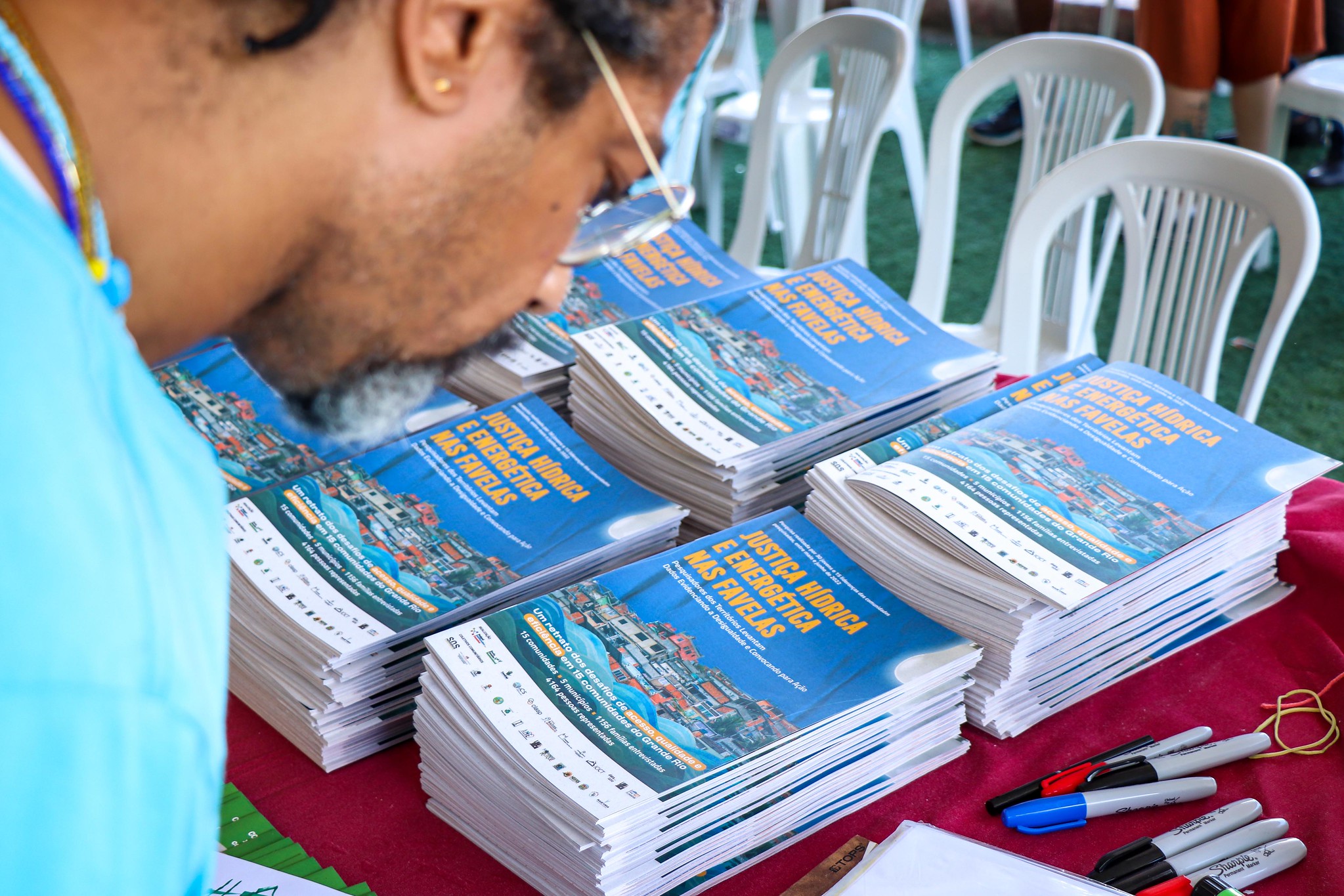
Following the retrospective video launch, the Annual Meet-Up continued with the Salgueiro Herb Growers Group who ran a lively conversation circle on popular medicine and ancestral pharmacology, which constitutes indigenous and black cultural heritage in the favelas and urban peripheries. After the herb growers spoke, people from different generations, locations, and backgrounds shared their experiences and medicinal recipes using native leaves, herbs, and roots that grow in their territories—ancestral medicinal rituals passed on through collective knowledge. The exchange highlighted the ways in which collective memory nourishes the connection between people, nature, and healing.
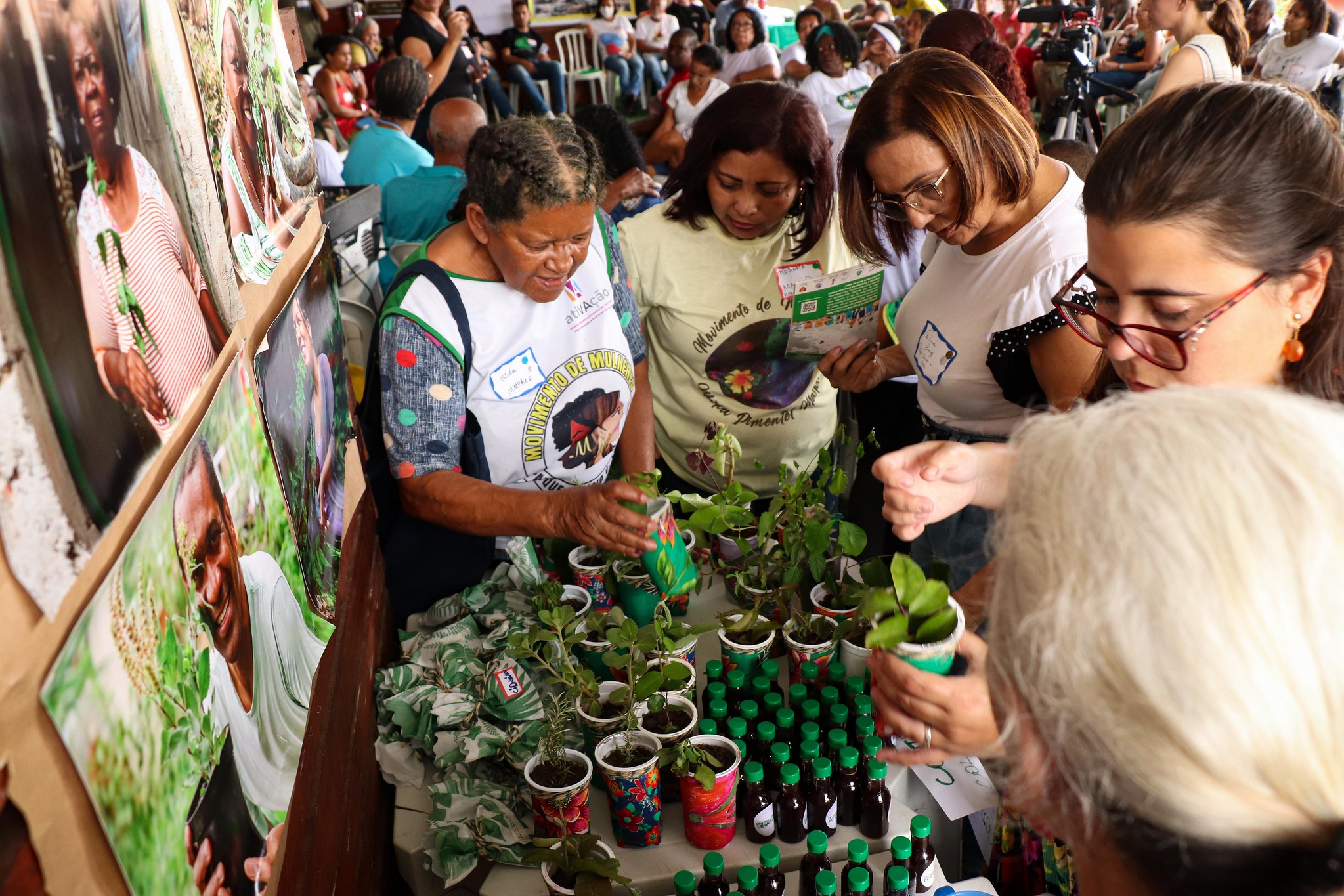
During a lunch at the affective, ancestral culinary kitchen of Padaria Caliel, with food homemade by Marcelo da Paz, all those attending were able to enjoy panoramic views of the city and socialize. Marcelo da Paz opened up Caliel’s roof terrace for the SFN Annual Meet-Up lunch.
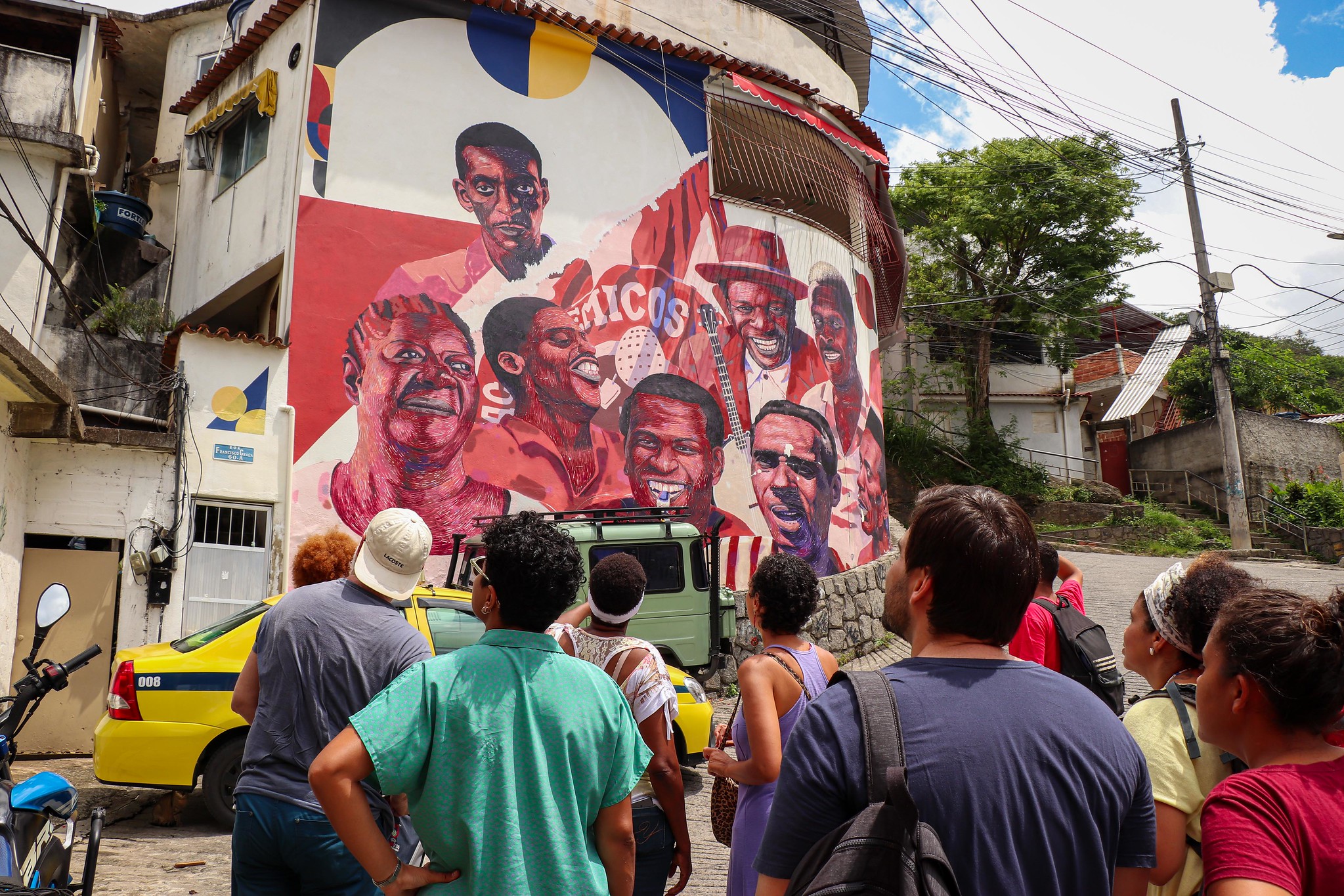
In the afternoon a presentation introduced the Favela Community Land Trust (F-CLT)* to network members. Featuring presentations from community organizers who fight for the right to housing, the workshop shared how this model of collective land ownership and individual home ownership offers an alternative in the challenge of achieving accessible housing and in support of guaranteeing the right to permanence for favela families in Rio de Janeiro.
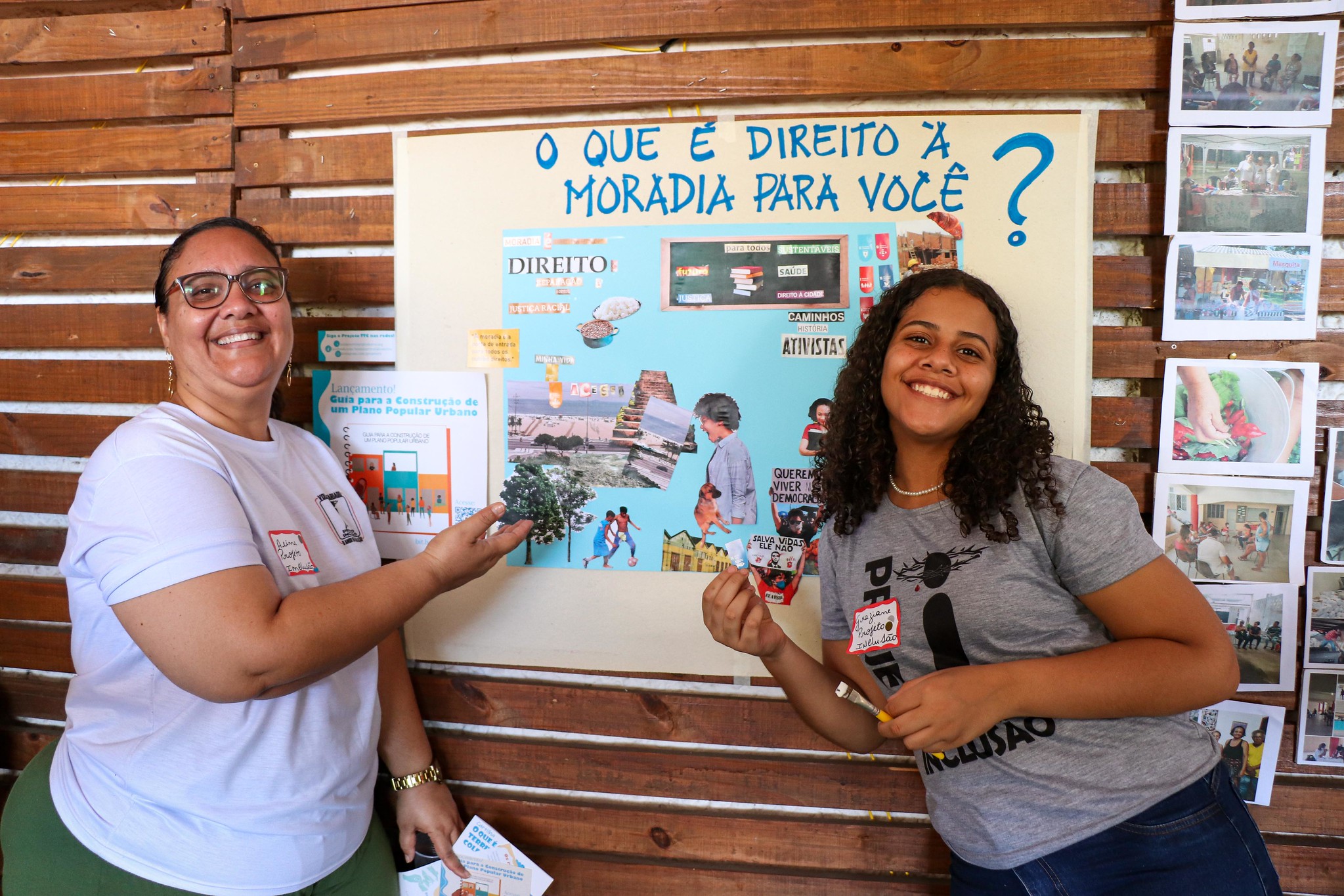
Before closing out the activities on this special day, the Sustainable Favela Network took time to evaluate, reflect, suggest, and plan the activities it intends to carry out in 2023. Members decided to continue and expand the SFN’s Climate Justice Initiative through thematic and intergenerational exchanges, and greater involvement of youth. The areas of focus for 2023 will include realizing a rotating series of knowledge exchanges across the city, involving youth, developing opportunities for the continuing education of grassroots leaders, and expanding the network’s advocacy work.

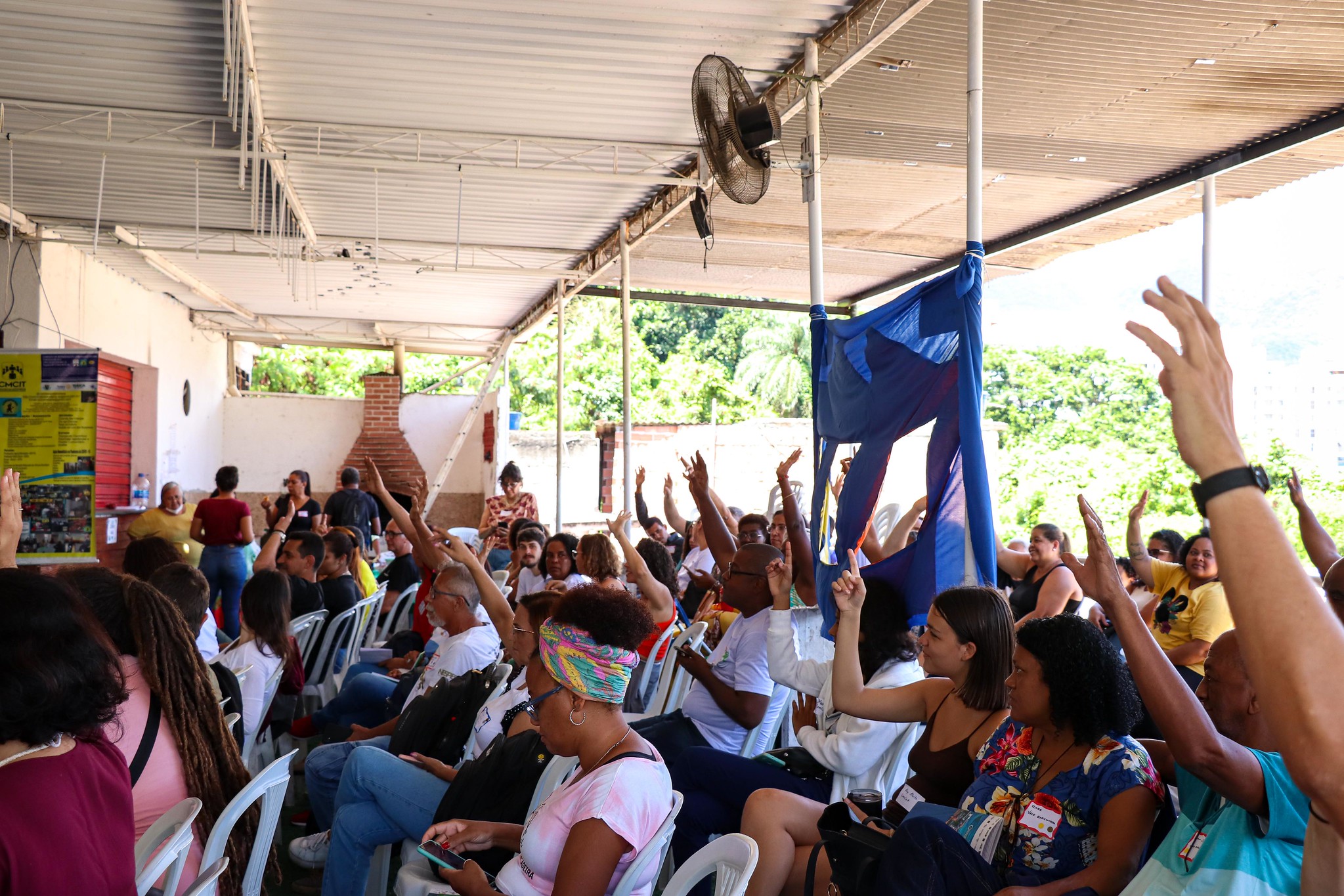
After a day of incredibly rich encounters, with hugs exchanged and plans outlined, the SFN closed another special year of activities with a large Caxambu circle led by the Caxambu do Salgueiro group. Caxambu is an Afro-Brazilian dance and musical tradition popular in the southeast of Brazil. The lyrics and dance are strongly linked to the history of Morro do Salgueiro, its characters, slavery, the quilombo, and the favela. It’s a dance about the history of black Brazilians.
During the Caxambu circle, SFN participants could put their feet on the ground in a form of collective connection with the land and their ancestors. The colorful patterned and flowing skirts, the beat of the drum and handclaps—everything was wrapped up in the songs and chants which participants repeated back. The matriarchs of the community took part in the circle and led the songs—word games which transmit and eternalize the lived history there and in other favelas and quilombos, sharing this local cultural resistance with a new generation.
Between the umbigadas (traditional Caxambu dance moves) and the machado (traditional shouts between songs), all those who took part in the Annual Meet-Up had the opportunity to enter the circle and strengthen the connection between the many favelas represented there. It was the perfect ending to look to the past and to the future at the same time, celebrating what was realized in 2022 and what’s to come in 2023, embraced by nature and collectivity.
Check out the photo album below or click here to view on Flickr:

*The Sustainable Favela Network (SFN), Favela Community Land Trust (F-CLT) Project, and RioOnWatch are all projects of Catalytic Communities (CatComm).
